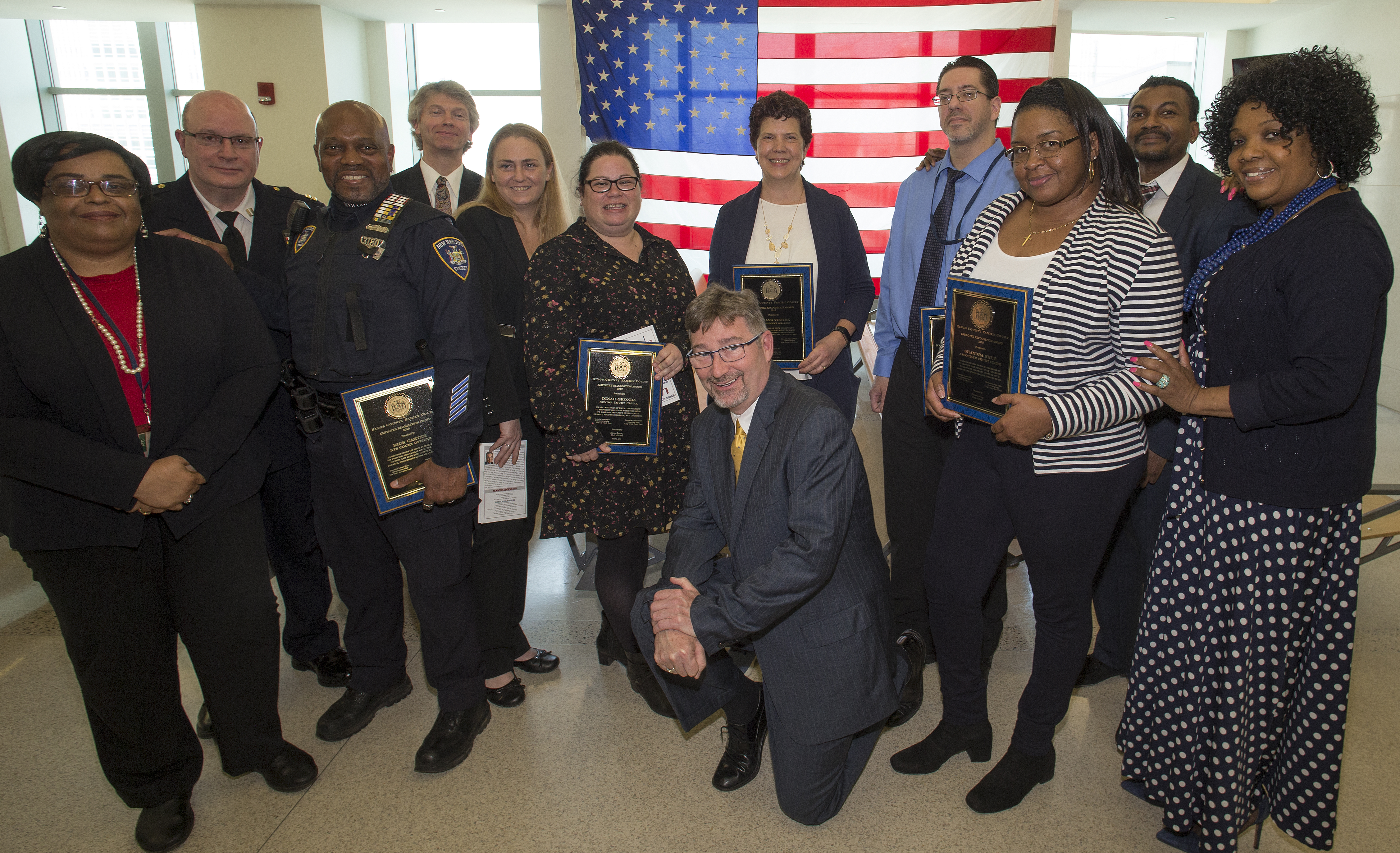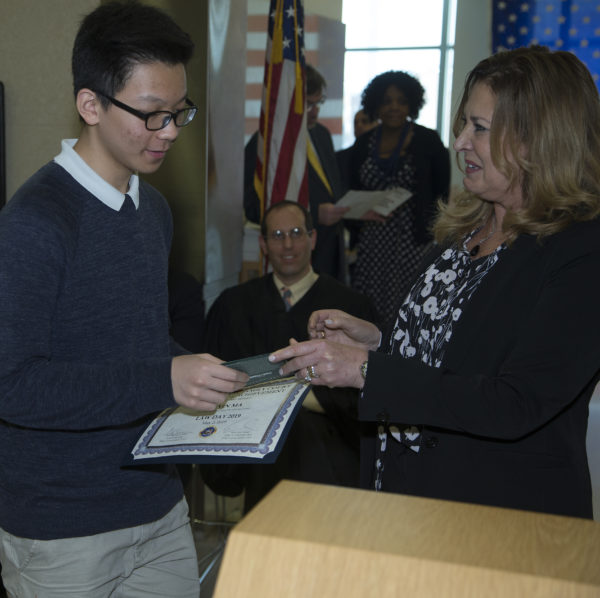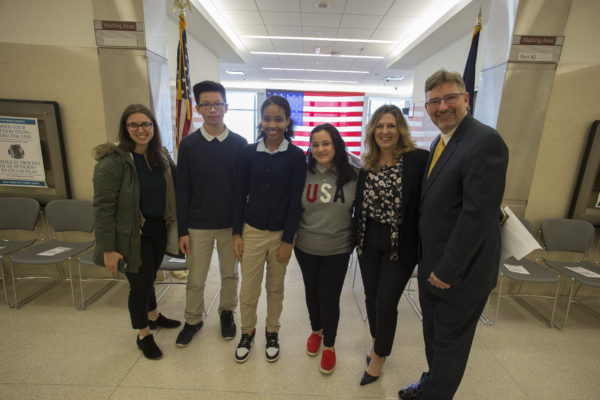Brooklyn Family Court puts focus on First Amendment during Law Day celebration

Kings County Family Court celebrated its 26th annual Law Day, providing the opportunity to honor clerks, court officers, and other court support staff. In addition student finalists for the Law Day Essay Contest from the nearby Urban Assembly School for Law and Justice were on hand to hear announcement of the winning essay.
Destiny Barrera, Kevin Ma and Jailynn Moye each took on a hypothetical case of a member of the LGBT community being denied services on religious grounds in North Carolina.


In his opening remarks, Law Day co-organizer Judge Erik Pitchal reminded the assembly that it was 2019, the 50th anniversary of Tinker vs. Des Moines, a case that developed after public high school students in Des Moines were suspended for wearing black armbands in silent protest of the Vietnam War. In deciding 7- 2 for the students, the Supreme Court argued that children don’t give up their fundamental constitutional rights simply because they’re in school.

Brooklyn Boro
View MoreNew York City’s most populous borough, Brooklyn, is home to nearly 2.6 million residents. If Brooklyn were an independent city it would be the fourth largest city in the United States. While Brooklyn has become the epitome of ‘cool and hip’ in recent years, for those that were born here, raised families here and improved communities over the years, Brooklyn has never been ‘uncool’.